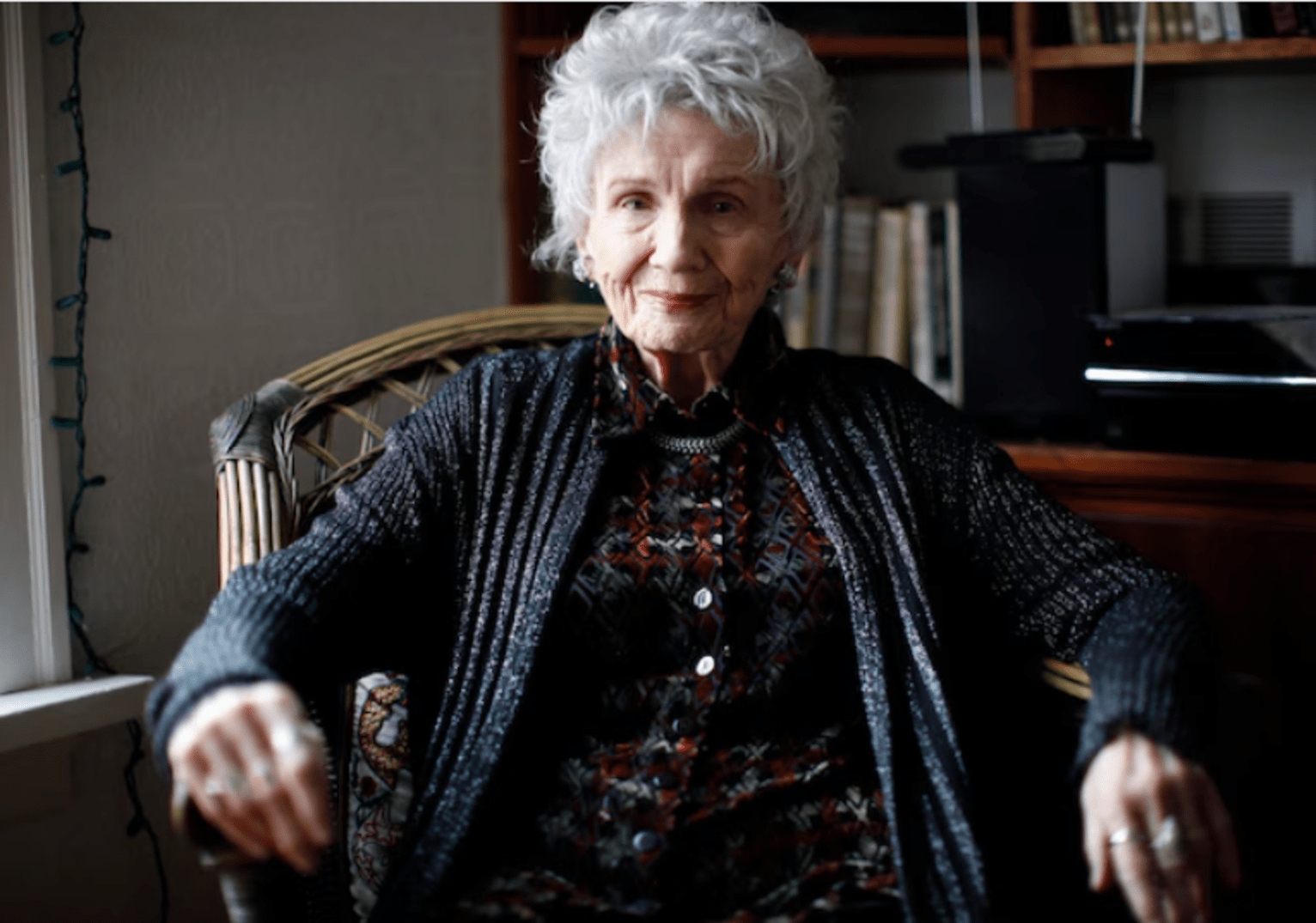
Dark Secret Casts Shadow on Munro’s Legacy.A Legacy Tarnished: Alice Munro’s Daughter Reveals Shocking Secret
The literary world mourned the passing of Alice Munro, Nobel laureate and master of the short story, in 2013. Yet, a recent revelation by her daughter, Andrea Robin Skinner, casts a long shadow on Munro’s legacy. In an essay published in the Toronto Star, Skinner alleges a dark family secret – years of sexual abuse at the hands of her stepfather. Dark Secret Casts Shadow on Munro’s Legacy
A Painful Past Surfaces
Fremlin, a university administrator, entered their lives in 1976. Skinner claims the abuse began when she was just nine years old.
“There were moments of normalcy,” Skinner writes, “but they were overshadowed by a constant sense of fear.” She details inappropriate touching, exposure, and disturbing conversations about Munro’s “sexual needs.”
A Mother’s Silence?
The most damning aspect of Skinner’s account is her portrayal of her mother’s alleged inaction. When Skinner finally confessed the abuse at 15, Skinner writes, Munro’s reaction was “exactly as I had feared.” Munro reportedly blamed Skinner, suggesting it was a misunderstanding. The family dynamic fractured, and Skinner alleges she was forced to maintain a facade of normalcy.

Public Figure, Private Pain
Munro, a famously private person, rarely spoke about her family life. This silence, in light of Skinner’s claims, takes on a new meaning. Did Munro prioritize her career and public image over her daughter’s well-being? The unanswered questions fuel a storm of speculation.
Seeking Justice and Healing
Skinner, now a writer herself, penned the essay not for revenge, but for healing. The essay also serves as a warning to others, urging victims to speak their truth.
“For years, I felt silenced,” Skinner writes. “Now, I finally have a voice.”
The Munro Estate Responds
The Alice Munro Estate, managed by Munro’s son from her first marriage, has issued a brief statement. They express “sincere sympathy” for Skinner but decline to comment on the allegations, citing privacy concerns.
Literary Community Reevaluates
Munro’s work, often focusing on complex family dynamics and unspoken truths, takes on a new layer of complexity. Did her fiction reflect her own personal struggles? Literary critics are revisiting her stories with a critical eye.
A Legacy Reconsidered
The allegations against Munro force a reevaluation of her life and work. she is leaving readers and fans grappling with a complex and disturbing truth.
Beyond the Headlines: A Ripple Effect
Skinner’s revelation has a ripple effect beyond the literary world. It reignites conversations about child sexual abuse, the power dynamics within families, and the courage it takes for victims to speak out.
The Road Ahead: Healing and Change
The road ahead is uncertain. Skinner’s essay has undoubtedly tarnished Munro’s legacy, but it also sheds light on a hidden reality. The hope lies in using this revelation to spark conversations, promote healing for victims, and prevent future abuse.
A Fractured Fairytale: The Weight of a Secret
Alice Munro’s life seemed like a storybook – a childhood in rural Ontario, blossoming into a literary career that garnered her the Nobel Prize. Yet, Andrea Robin Skinner’s revelation shatters this idealized image. The weight of the secret she carried for years now burdens not just her, but also Munro’s literary legacy.
From Happy Home to Hidden Horror
Skinner paints a picture of a happy childhood disrupted. Gerald Fremlin’s arrival wasn’t just a change in stepfather, it was a descent into darkness. The normalcy Skinner describes feels fragile, constantly threatened by a looming fear. Her words, “inappropriate touching,” and “disturbing conversations,” leave a chilling emptiness where details should be.
A Mother’s Choice: Silence or Survival?
The most agonizing aspect of Skinner’s story is her mother’s alleged response. The silence that followed her confession wasn’t comforting; it was deafening. Skinner’s claim of being blamed adds another layer of devastation. Did Munro prioritize public perception over her daughter’s well-being? This unanswered question lingers, a heavy weight on Munro’s memory.
Behind the Curtain: Public Persona vs. Private Pain
Munro fiercely guarded her privacy. Now, this veil of secrecy takes on a sinister tone. Was it a shield protecting her family or a way to hide a dark truth? Skinner’s essay forces readers to re-examine Munro’s work. Did her stories, often exploring family dynamics and unspoken truths, mirror her own reality? Did she bury her pain within her fiction?
Breaking the Silence: A Voice Reclaimed
Skinner’s decision to speak out isn’t fueled by vengeance. It’s a quest for healing, a reclaiming of her own narrative. The essay acts as a powerful tool, not just for Skinner, but for victims everywhere.
“For years, I felt silenced,” Skinner writes. “Now, I finally have a voice.”
The Estate Responds: A Calculated Silence
The Alice Munro Estate, managed by her son from her first marriage, maintains a distance. Their brief statement offers sympathy but deflects any responsibility. Citing privacy concerns feels like a calculated move, avoiding the storm brewing around Munro’s legacy.
A Critical Re-evaluation: Can We Separate the Artist from the Art?
Once celebrated for its nuanced exploration of human relationships, Munro’s work now faces a critical re-examination. Can we appreciate her literary genius while acknowledging the alleged darkness in her personal life? This question hangs heavy in the air, leaving readers to grapple with a complex and disturbing truth.








